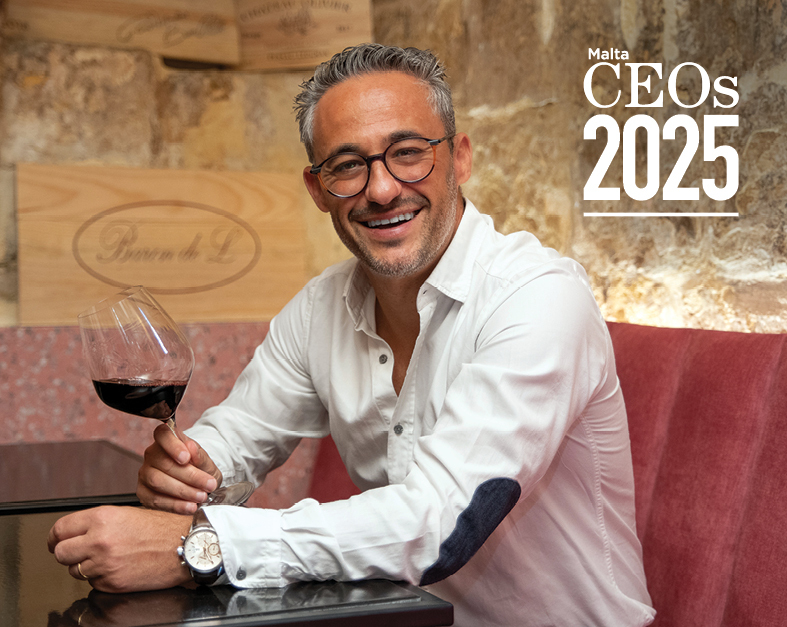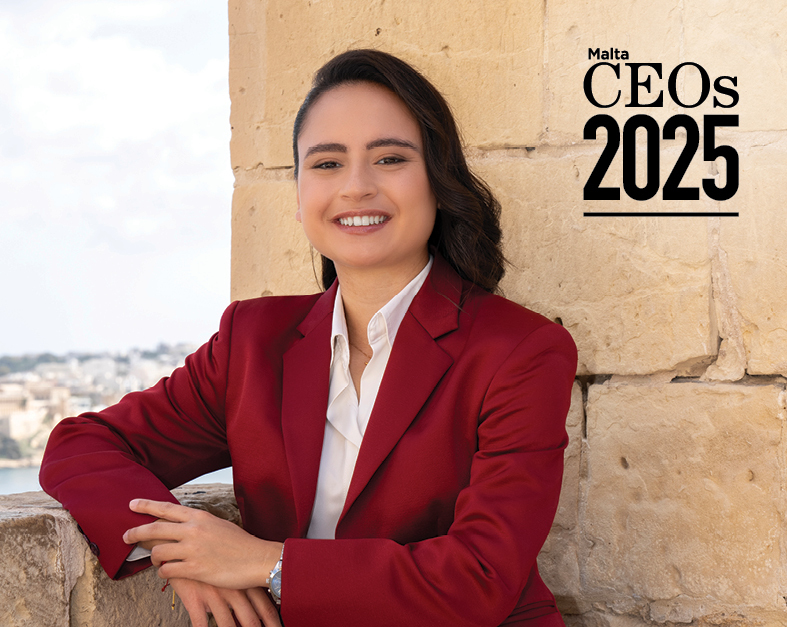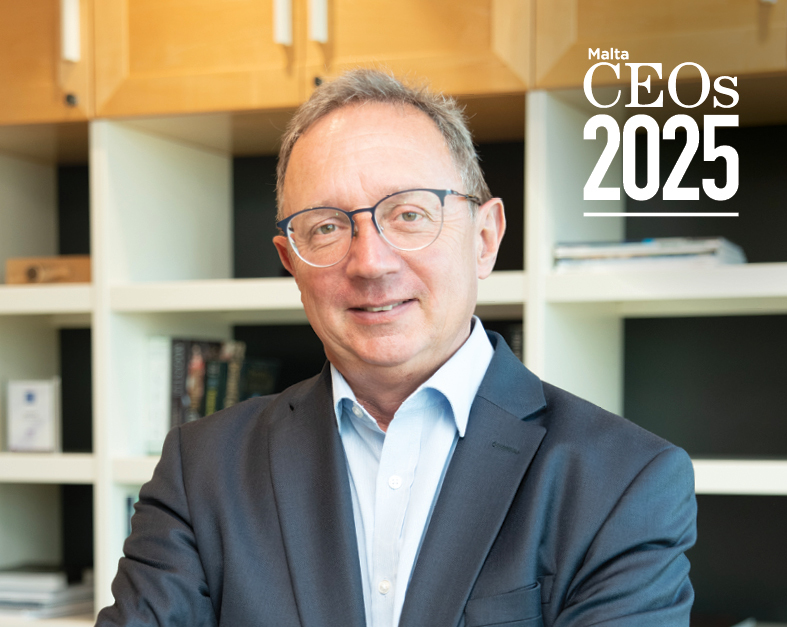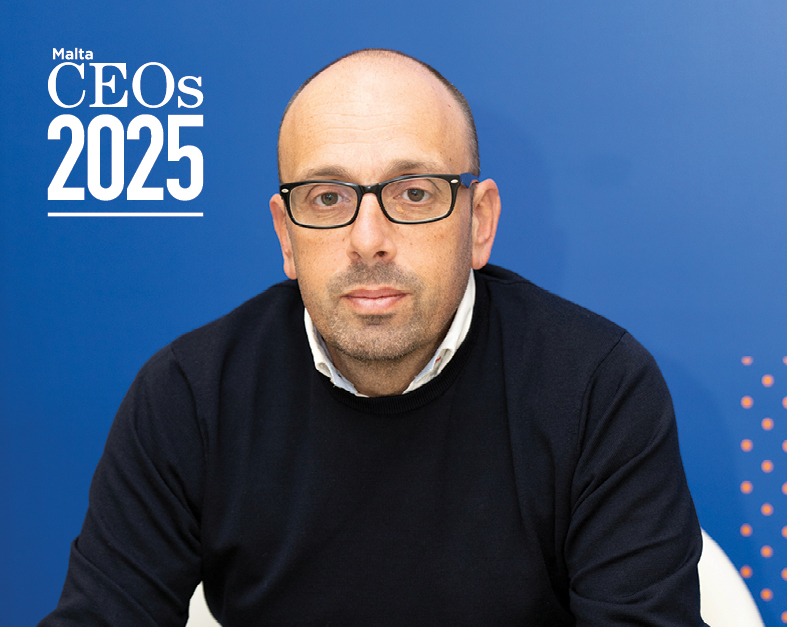Andrew Azzopardi, founder of Vintage’82, is not just selling wine; he is cultivating a revolution in how Maltese consumers experience, invest in and truly understand fine wines. With a blend of passion, expertise and innovative, forward-thinking strategies, Andrew is positioning his company at the forefront of an ever-evolving, dynamic industry landscape.
“Ever-changing; never the same,” is how Andrew Azzopardi describes his role as CEO at Vintage’82. “In a small, dynamic company like ours, adaptability is essential,” he explains. “One moment I’m crafting long-term strategies, the next I’m deeply involved in day-to-day operations. It’s a delicate balance between big-picture thinking and hands-on management. Yet, while it can sometimes feel chaotic, I’ve learnt how to find serenity in the chaos.”
This agility has served Vintage’82 well in an era marked by significant shifts in consumer behaviour and industry trends. Andrew’s business philosophy remains rooted in a passion for wine that transcends commerce. “Our commitment to quality is unwavering,” he affirms. “If I wouldn’t drink it myself, we won’t sell it.” This principle has served as the foundation for rebuilding trust in an industry where promises often fall short.
“People are increasingly seeking real quality, not just marketing claims,” Andrew continues. “That’s the niche we’re striving to fill. We aim to restore the true essence of excellence in the wine industry in Malta, combining top-tier wines with exceptional service, catering to both luxury superyachts and the local market.”
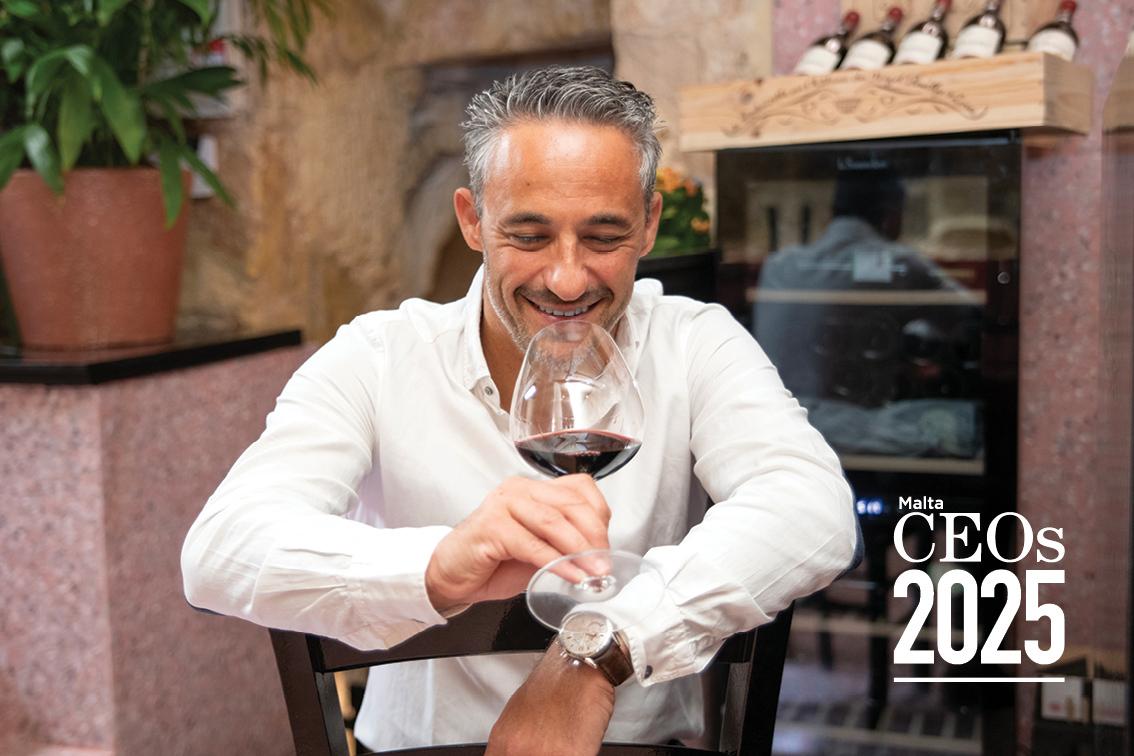
Across sectors in Malta, Andrew believes the perception of quality has been diluted over time, which has become a widespread issue. “There’s a significant gap between what’s promised and what’s delivered, especially in wine purchasing. One of the challenges of 2024 was an erosion of trust in local industry – a palpable sense of lost confidence in leaders, whether in government or business – which has created a climate of subtle animosity,” he notes. “It’s our responsibility as business leaders to address this by demonstrating our commitment to integrity and transparency. We must deliver premium quality, and I believe we’re on the right path.”
Looking ahead to 2025, Andrew asserts that businesses must adapt to rapidly changing market demands if they want to stay relevant and competitive. “I’ve identified three key trends shaping our industry: Growing health consciousness, a focus on quality over quantity and increasing environmental awareness. These factors are becoming critical elements in consumer decision-making,” asserts Andrew, steadfast in his belief that, as producers and retailers, aligning with these evolving consumer preferences is essential for long-term success.
“It’s not just about selling wine anymore; it’s about offering a healthier, higher-quality and more sustainable product that resonates with today’s values and lifestyle choices. Consumers are drinking less but opting for higher-quality wines, moving away from bulk wines and seeking more refined, artisanal products. They’re willing to pay more for a superior experience. Importantly, premium wines are often produced with fewer additives and more care, which promotes better health,” Andrew explains.
“What’s more, to remain ahead of the game nowadays, top-tier wines must be sustainably produced. Consumers are more informed and discerning than ever, and they expect transparency and authenticity from the brands they trust. We need to meet those expectations while maintaining the integrity and quality of our wines.”
Many premium producers are already adopting organic or biodynamic practices, even if they are not advertised on the label. “Organic practices should be a given, not a selling point,” Andrew insists. Winemakers are returning to basics, and as far as Andrew is concerned, any winemaker worth their salt, places the environment and sustainability at the core of producing quality wine. “Simply put, you can’t make great wine without respecting your environment. It’s about acknowledging nature in every step of the process – from the soil to the bottle,” he adds, emphasising the connection between craftsmanship and the natural environment.
The question is, does local wine make the grade? “The quality of local wine has improved tremendously. I’m a big fan, and I’m proud to have sold local wines to one of the world’s largest superyachts. That was a real highlight for me!” Andrew enthuses. “Malta’s wine industry is going through an exciting phase. We have established producers taking quality very seriously, and then there’s this new wave of ‘garage winemakers’ – passionate, clever individuals crafting excellent wines in small batches under great conditions. This blend of innovation and tradition is what makes the Maltese wine scene so dynamic today.”
As the wine industry evolves, both challenges and opportunities lie ahead. For Andrew, climate change is a critical issue. “We need to lead by example, not just give lip service. I can literally taste climate change in the wines being produced. Bordeaux wines from the 90s were about 11 per cent alcohol; now, even in a cool year, they’re hitting 13 to 14 per cent alcohol content, and that’s purely down to rising temperatures.”
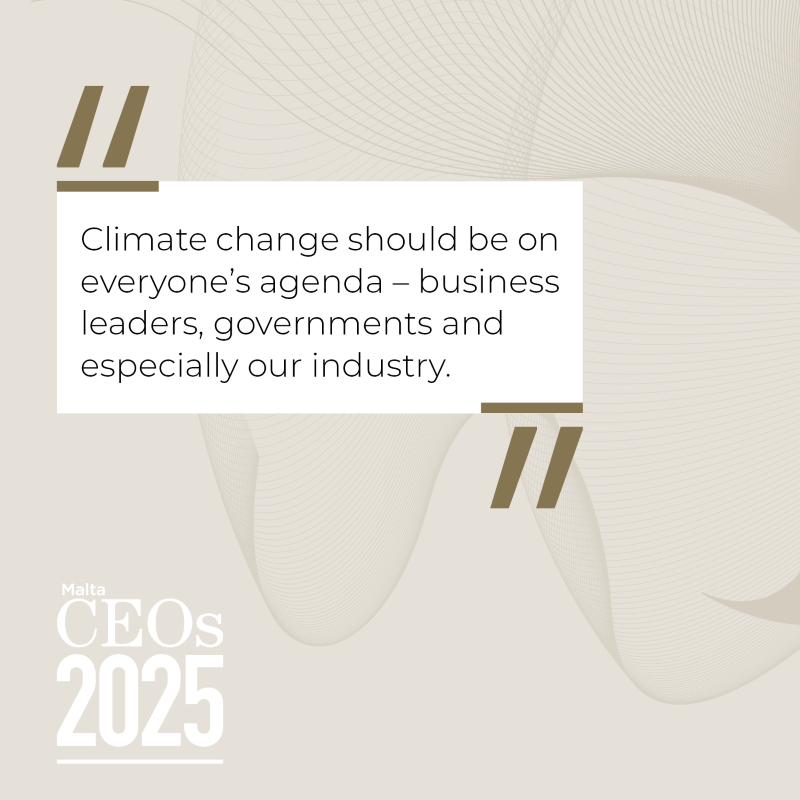
While there are ways to adapt, such as changing grape varieties, Andrew believes more action is needed. “Climate change should be on everyone’s agenda – business leaders, governments and especially our industry. It must be a crucial focus in the coming years,” he insists. “As leaders, we need to set our own targets for addressing climate change rather than wait for the authorities to do it. From small steps like reducing the use of plastic and paper to bigger initiatives like switching to electric vehicles, environmental concerns need to form part of our long-term strategy.”
For Vintage’82, 2024 was a year of consolidation, with a strong focus on strategic planning for the future of the business in 2025 and beyond. “We used 2024 to solidify our foundation and map out our growth strategy. The goal was to set the stage for expansion in 2025,” Andrew explains. “Opportunities are constantly emerging in our industry, waiting to be seized. The real challenge is discerning which ones to pursue. Any move we make must align with our long-term vision for sustainable growth and innovation.”
One exciting opportunity was the expansion of Vintage’82’s retail outlet – an endeavour that emerged through close collaboration with a client. The new venture aims to be a safe space for premium wines. “Walking into a wine shop with a huge selection can be overwhelming, which is why we want to rebuild trust with our consumer base. We’ve tasted every wine we sell, and we guarantee top quality,” Andrew says. “But we’re not just another retail outlet; we think of it as a concept store – hosting events, classes and face-to-face experiences. We want clients to feel like they’re entering my living room. We want them to come in, become our friends, pick up a glass of wine, and taste it right there with us.”
Vintage’82’s philosophy is that wine is not just an investment; it is a journey – and Andrew invites his clients to join him on this adventure, encouraging them to experiment, discover new varieties and explore lesser-known regions. His advice? “Stop sticking to just Italian, Bordeaux or Burgundy – play around and broaden your wine horizons! Here’s our guarantee: Whatever we give you to try, it’s going to be quality, and you might just find a new favourite along the way.”
This article is part of the serialisation of 50 interviews featured in Malta CEOs 2025 – the sister brand to MaltaCEOs.mt and an annual high-end publication bringing together some of the country’s most influential business leaders.
‘It’s unwavering persistence that drives breakthrough achievements’ – Manila Di Giovanni, DWorld CEO
'Our virtual economy hub will showcase Malta’s heritage, local enterprises, startups, and public institutions on the global stage.'
‘If you believe in what you’re trying to achieve, you’re already halfway there’ – Jordan Camilleri
The co-founder of Health & Co describes establishing and running a business as a life-long learning process.
‘We want to push the boundaries. We want to lead’ – AX Group CEO and Deputy Chairman Michael Warrington
His experiences working across various industries, have provided Michael Warrington with valuable insights into how AX Group's businesses are affected.
‘Technology changes so rapidly that what was agreed at the beginning of the year can change halfway through’ – Joseph Aquilina
The company never stops innovating and diversifying, which infuses different areas of the business with energy.


